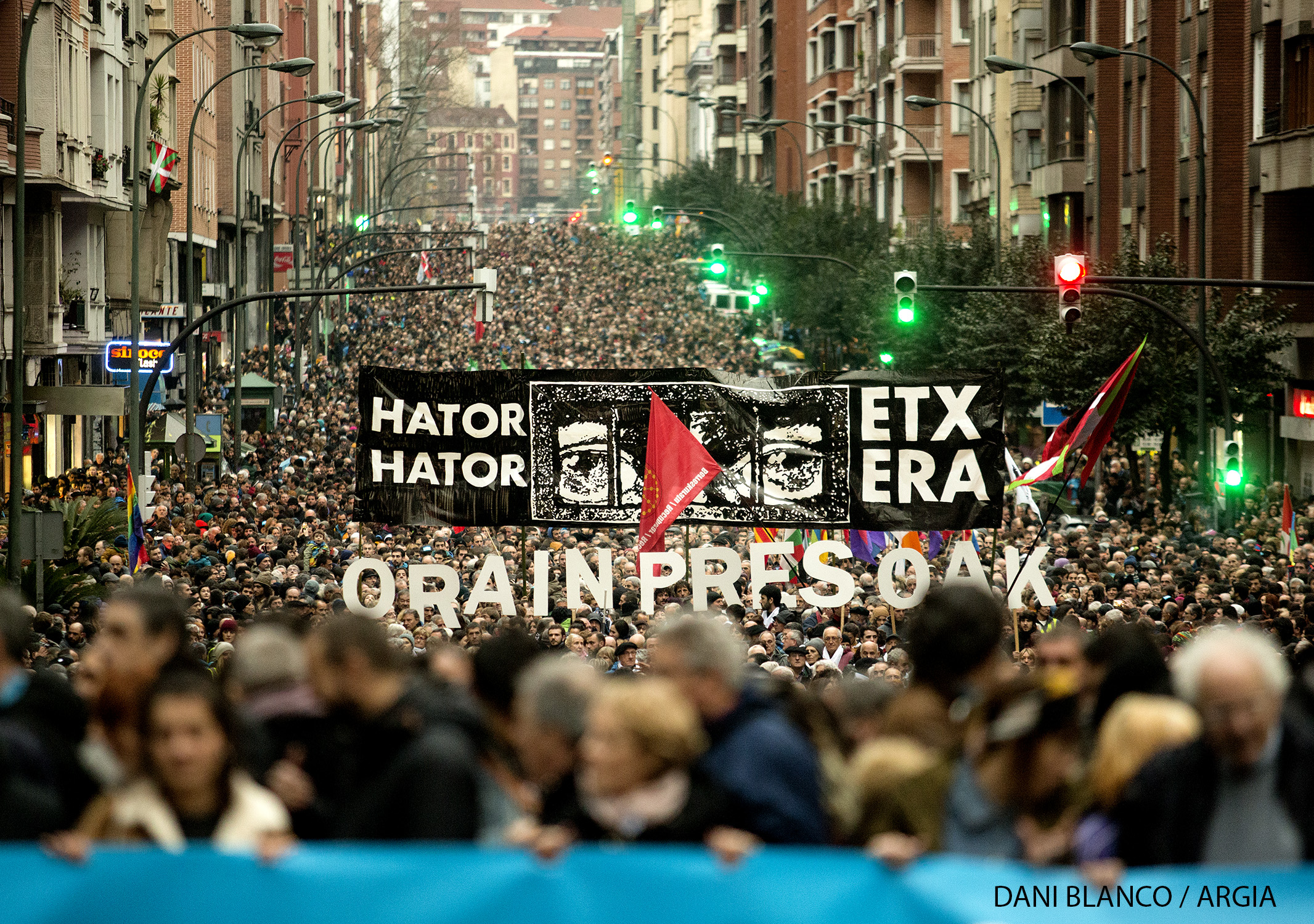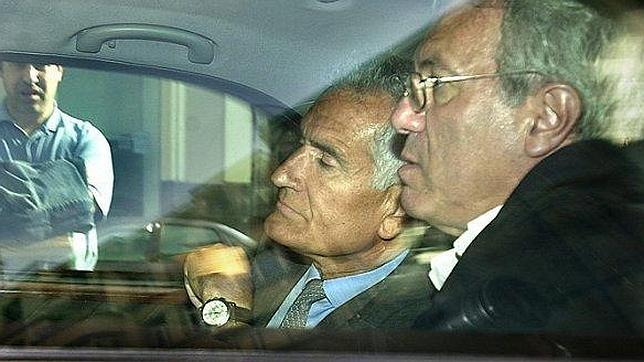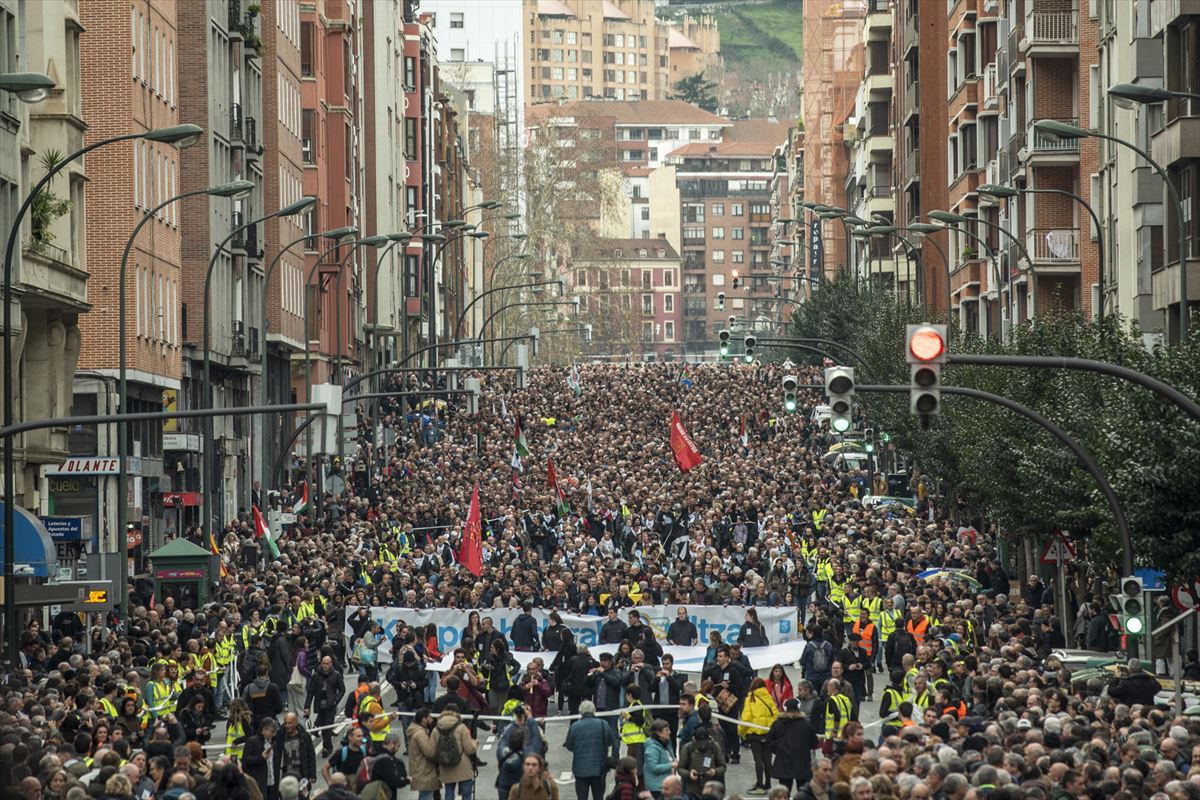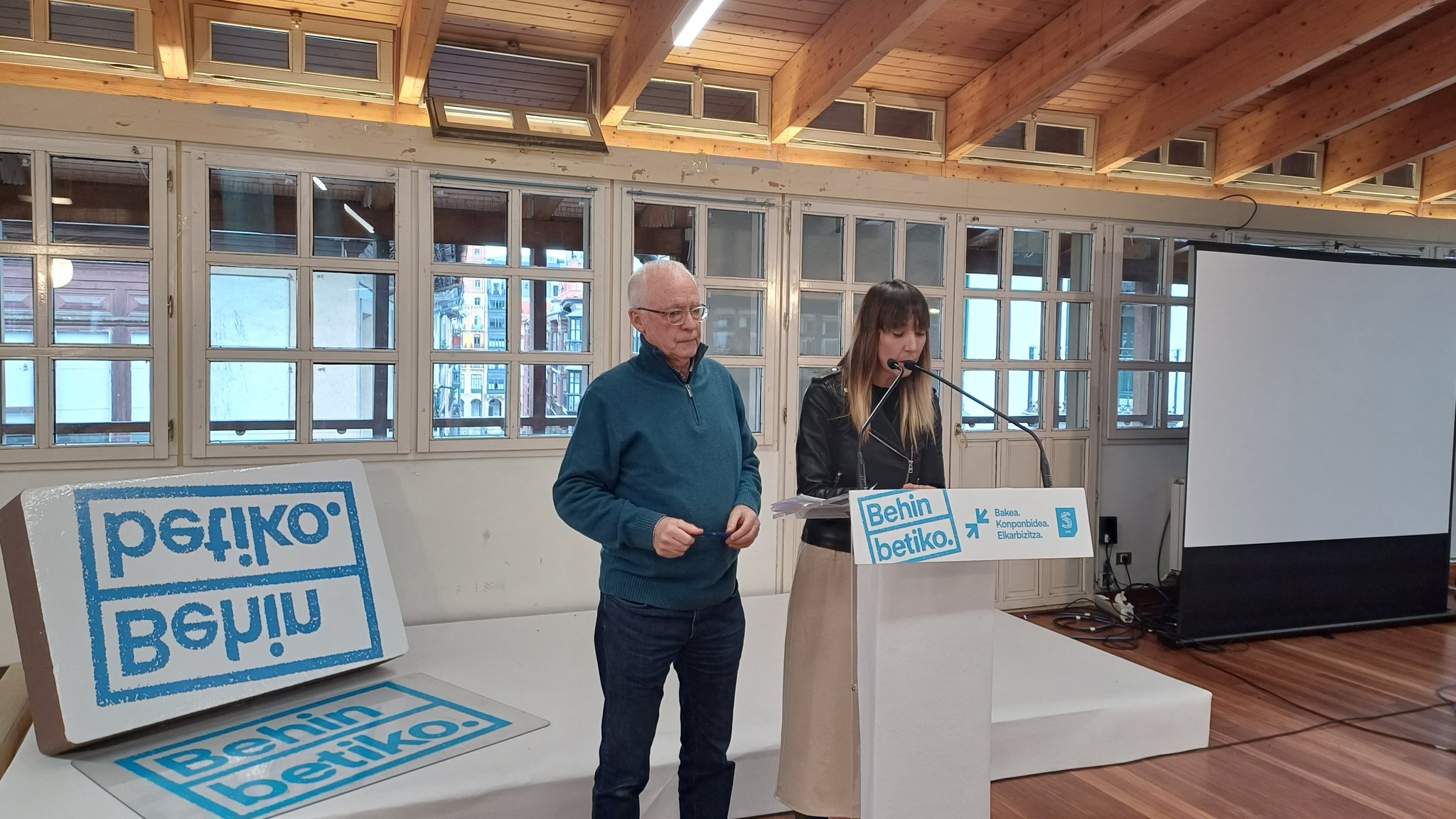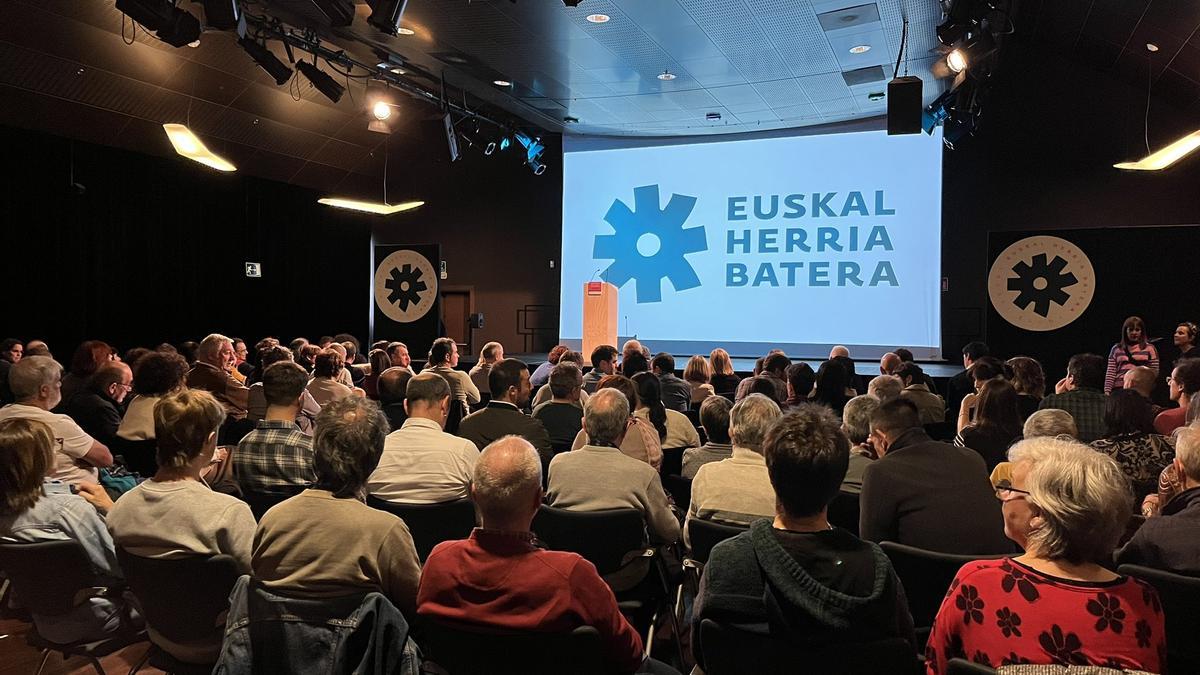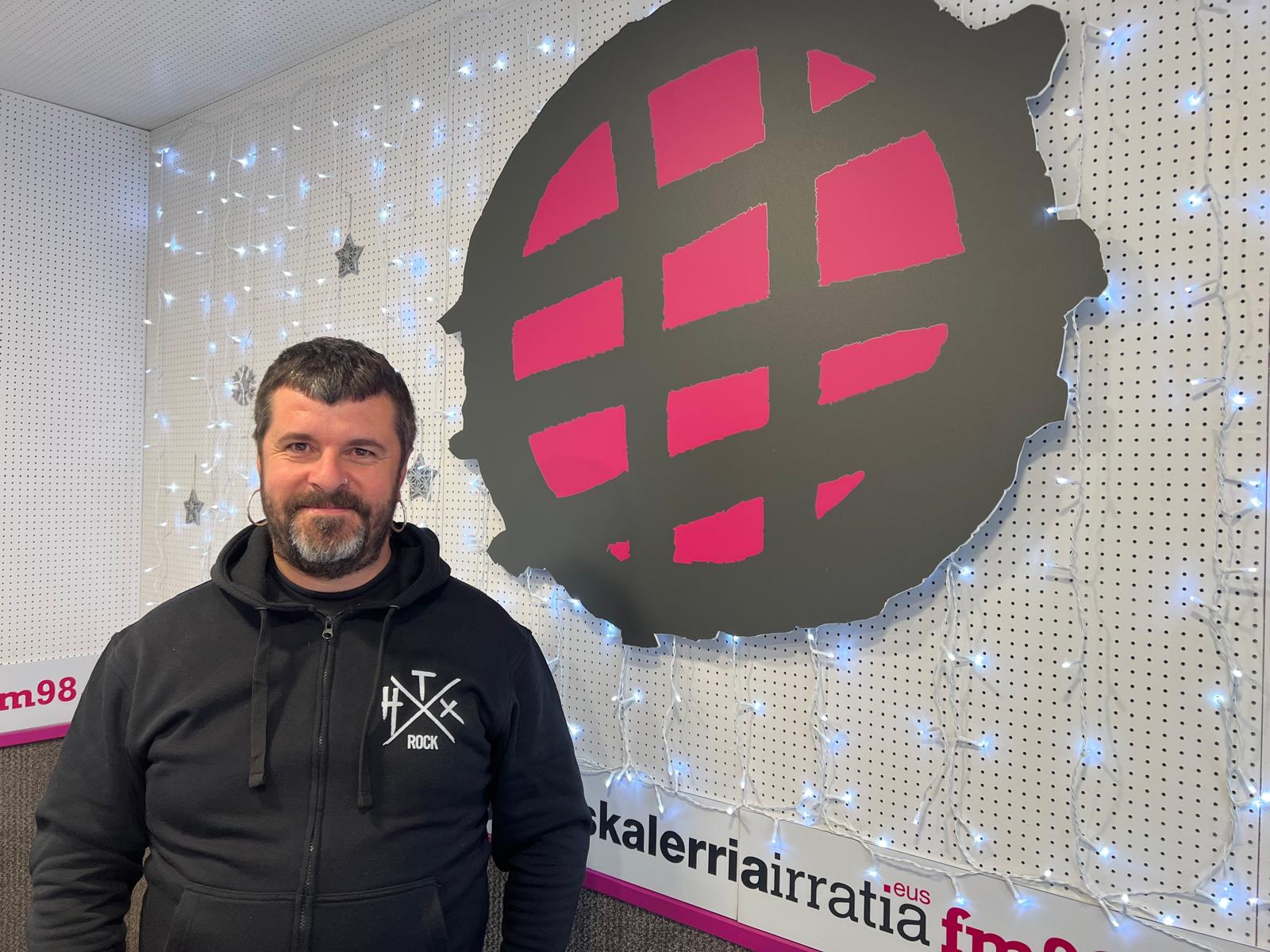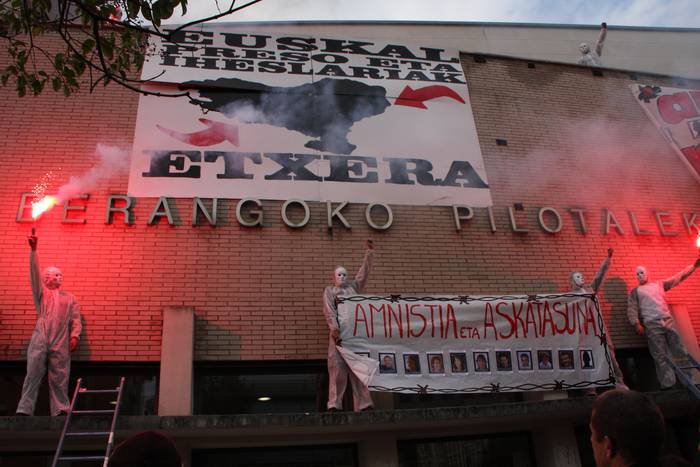Wound of a steering wheel
- You have seen it in Bilbao, Madrid and other places, but this Friday the story of a wheel that has been sold recently is premiered in its Plaza de Pamplona/Iruña. The première took place on Thursday night in the capital, with the crowded room of people and expectation. The documentary ended with a loud and prolonged applause.

Before starting the film, the directors Iñaki Alforja and Iban Toledo stressed to the public that it has been received very well in Madrid and in the rest of the places, but that the real place of the film was Pamplona. Like many of the viewers, they felt nervous, including the protagonists of the documentary.
The documentary focuses on the disappearance of the militant of the Autonomous Commandos José Miguel Etxeberria, Naparra, who disappeared 41 years ago in Iparralde, and on the suffering that his family had suffered four decades ago in the search for the trace of his son and his brother. The disappearance and Naparra himself lead the beginning of the film, but the incessant protagonist of the film, Eneko Etxeberria, and his family, the couple Amaia and his son Oier, increasingly occupy more space.
They've made the film penetrating to the bottom of their homes and their lives, and so they get the directors to touch the viewer's insides. It is a hard, hard, but grateful story, because it brings us closer to the suffering of a family; and because it is a step further in the recovery of the memory of the conflict; because it adds one more point of view to the puzzle, as Alforja says.
Eneko Etxeberria made this clear in the film's next colloquium: “Crimes against humanity are until the enforced disappearances of States become clearer.” Naparra's memory, his family, needs to do justice, reclaim the bones of the corpse and end the four-decade mourning.
Eneko is the great protagonist, and her parents, Celes Álvarez and Patxi Etxeberria, are also on the screen. Oier and Amaia are also the main ingredients. Oier, the heir of the family farmhouse, stands out, a future that should not carry the burden of his father when channeling the case of Naparra. It's been four years of being trapped in the celluloid networks.
The case now
In 2017, a search was carried out for the body of Naparra in Mont-de-Marsan. After being claimed by the National Hearing, registration in the French State was achieved in six months, according to the Public Prosecutor’s Office. Then there were two posts to inspect, but one was inspected. The second area, which was requested three years ago by the National Court at the request of the family but which has not yet been answered by the French authorities, remains to be traced. His family waits for it, he can't. Waiting for that, and like many other families, for the Spanish Government to open the law on official secrets, because they believe that the keys to many cases still to be clarified can be behind that door.
“As your mother Celes said, she grabs the plagues from the house and go,” a woman asked Eneko in the conversation. “There is no lack of enthusiasm,” he said, but everything has to be done by law. That we imagine, that we meet and that they accuse us of having created this story for ourselves. No, everything has to be done under the control of justice.”
In the documentary, Eneko realizes the joy they had in 2013 with the UN declaration. The important thing is that until then the institutions here looked at the case from afar; or, worse still, turned a blind eye until the early 2000s. Naparra's brother, a brother who aspires to be the only one to be Eneko Etxeberria, hopes that the case will reach the international community through that knowledge.
As Eneko acknowledged in the tertulia, the film is a social ointment and the applause of a full room.
Jar gaitezen 2025erako proposamen politiko gisa, Espainiako Auzitegi Kolonialaren (AN) epai guztiak berrikusten hasteko eta makila bakoitzak bere belari eusteko.
Unionismoarekin lerrokatutako alderdi, sindikatu eta gizarte-erakunde gehienek, eta ez bakarrik horrela... [+]
Next Saturday, 11 January, the Sare citizens' network called for a new demonstration in Bilbao in defence of the rights of Basque prisoners. This is a unique opportunity to move forward on the path of coexistence in our people, after decades of violent confrontation and, even... [+]
Hatortxu Rock jaialdiko 29. edizioa egingo da larunbatean Atarrabian. Sarrerak jada agortuta daude, baina txandak osatzeko laguntza behar da oraindik.
I have recently had the opportunity to see the latest work by Pierre Carles, a committed documentary author. Under the name of Guérilla des FARC, l'avenir a une histoire (FARC guerrilla, the future has history), proposes a renewed account of the armed conflict that has lasted... [+]
What surprised you the most when you left jail? I've been asked many times in the last year and a half.
See that the streets of Bilbao are full of tourists and dogs with two legs, for example? Or the changes in the political situation? The first one has tired me and annoyed me... [+]









